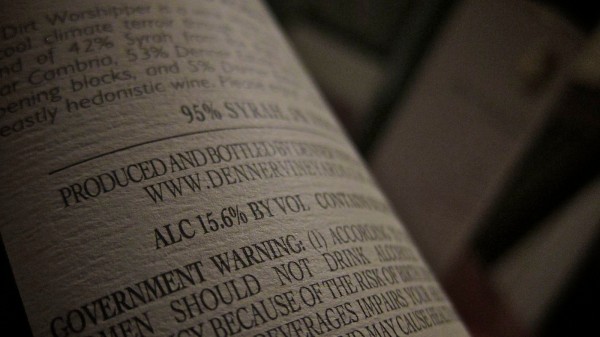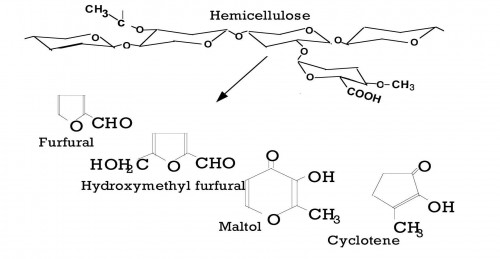
I don’t hear much discussion about the impact of higher alcohol levels on oak extraction, but I believe it’s an important variable to consider. The only trial I know of was conducted a few years by Taransaud. A red Bordeaux was aged in 30L barrels for 90 days withvarying levels of alcohol: 13% (no alcohol added), 14.5% (alcohol added) and 16% (alcohol added).
Oak is made up of the same three building blocks as other woody plants – cellulose, hemicellulose and lignin – plus tannins and small amounts of lipids. Through seasoning and toasting, these building blocks are broken down to reveal a range of aromatic compounds. The Taransaud trial showed that certain aromatic compounds and tannins had greater extraction in higher-alcohol conditions, while other components were unaffected by alcohol levels.
Extraction affected by higher alcohol level:
- Furfural (roasted almond, caramel aroma) – diminished during seasoning, produced during toasting
- Cyclotene (black licorice, caramel aroma) – produced during toasting
- Guaiacol (smoky aroma) – produced during toasting
- Phenols, 4-methyl-2, 6-diMeOphenol (medicinal aroma) — these were elevated in the early stages but evened out toward the end of the trial.
- Ellagitannins – oak tannins, broken down and lowered during toasting
Extraction not affected by higher alcohol level:
- Eugenol (clove aroma)
- Vanillin
- Whiskey lactones (fruity or coconut aroma)
- Acid phenols (ellagic acid and gallic acid)
Another observation in the trial, which surprised me, was that the wines with less alcohol evaporated more quickly. They would therefore have more oxygen contact and age sooner if left alone.
These findings convinced me that alcohol levels do affect the extraction of aromatic compounds in wine, and most affected are those produced or modified as a result of toasting and seasoning.
Unfortunately the trial lasted only lasted 90 days. It successfully measured the direct dissolution of the above compounds in wine, but not the chemical reactions that would have occurred between the wine and oak over a more standard barrel aging period — 9 months, 12 months, etc.
Do you know of any other trials that measured the effects of alcohol levels on oak extraction? Perhaps over a longer period of time? Any of your own observations you’d like to share?
